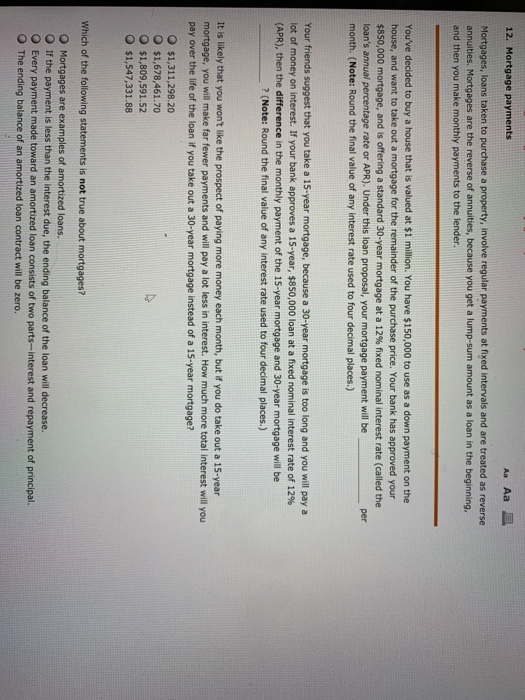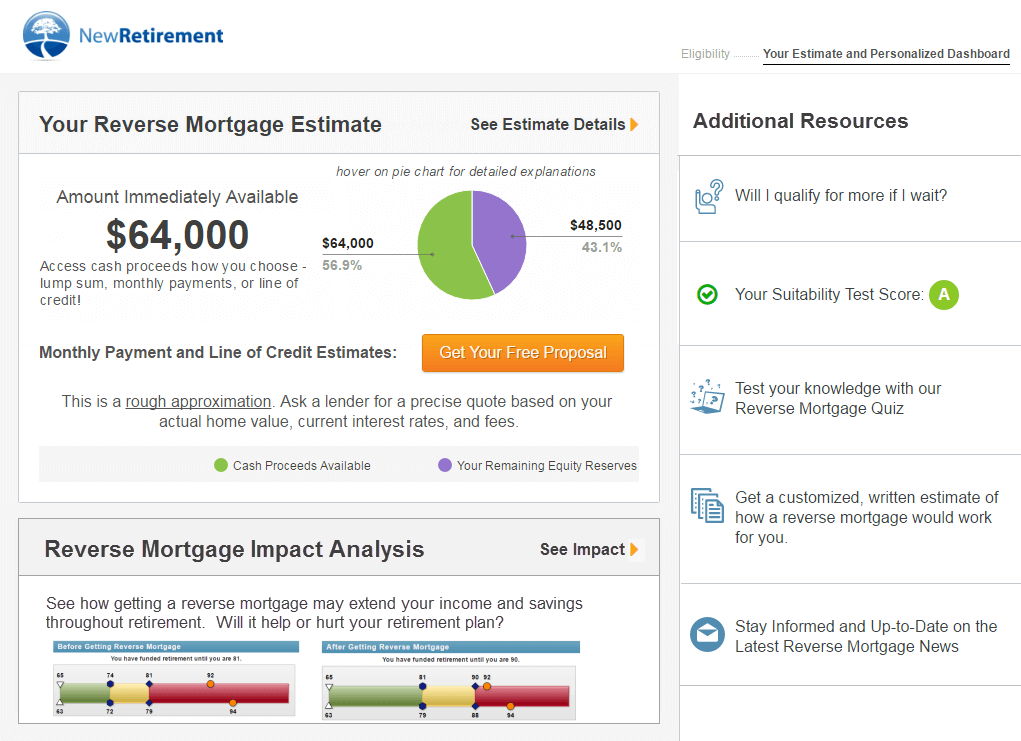Initially, let's review what a reverse home loan is. A reverse home loan is developed to permit senior older homeowners who own all or most of their property to withdraw some of the equity from the house for individual use Recipients can select to receive the cash as a lump amount, in monthly installments, or as a credit line.
As it is just available to citizens over the age of 62, it is suggested to be the last loan an individual will get on their home in their life time. A reverse home loan needs to be paid back when the home stops to be the loan recipient's primary house. This can occur when the recipient moves, downsizes, has actually remained in the hospital for over a year, https://www.timesharestopper.com/blog/timeshare-cancellation-company-review-of-wesley-financial-group-llc/ or passes away.
Usually, one of four things happens: 1. The recipient's life insurance coverage policy is used to pay off the balance of the reverse mortgage. 2. The recipient's heirs offer the residential or commercial property and utilize the profits to pay off the balance. If the residential or commercial property sells for more than the loan was worth, the heirs keep the staying equity.
3. The recipient's heirs re-finance and secure a new home loan on the house in order to keep the property. (It is possible to have both a reverse mortgage and a routine home loan on the same residential or commercial property, as long as the routine home mortgage has a low loan balance). 4. If the beneficiaries take no action within the allotted amount of time, the bank will foreclose on the house to recover the loan.
The 20-Second Trick For How Many Home Mortgages Has The Fha Made
Make certain to look thoroughly at the terms of a reverse home loan prior to taking one out, as some loans can carry high fees and rate of interest.
If you get a reverse home mortgage, you can leave your home to your beneficiaries when you die, however you'll leave less of an asset to them. Your successors will likewise require to deal with paying back the reverse home loan, and they might face significant issues at the same time, otherwise the loan provider will foreclose.
A "reverse" home mortgage is a particular type of loan in which older property owners transform a few of the equity in their home into cash. The cash is normally dispersed in the type of a lump amount (topic to some limitations), monthly quantities, or a line of credit. You can likewise get a combination of month-to-month installments and a credit line.
This kind of loan is various from regular "forward" home mortgages due to the fact that with a reverse home loan, the lending institution makes payments to the homeowner, instead of the house owner paying to the lender. Due to the fact that the house owner receives payments from the loan provider, the homeowner's equity in the residential or commercial property reduces gradually as the loan balance gets bigger.
The How To Compare Mortgages Excel With Pmi And Taxes Statements
With a HECM, the loan needs to be paid back when among the following events occurs: the borrower passes away the house is no longer the borrower's principal home (or the borrower moves out completely or leaves due to health factors for 12 successive months or longer) the borrower sells the home (or transfers title), or the borrower defaults on the terms of the loan, like by stopping working to keep up with insurance premiums or property taxes.

However they will not get title to the property free and clear because the residential or commercial property undergoes the reverse mortgage. So, say the homeowner dies after getting $150,000 of reverse mortgage funds. This indicates the beneficiaries inherit the house topic to the $150,000 debt, plus any fees and interest that has accrued and will continue to accumulate up until the debt is paid off.
1. Pay back the loan. (With a HECM, the beneficiaries can select to pay back 95% of the assessed worth themselves and keep the home. FHA insurance will cover the staying loan balance.) 2. Sell the house and use the proceeds to repay the reverse mortgage. (With a HECM, the successors can sell the house for the full quantity of financial obligation owed on the loan or a quantity that is at least 95% of the current appraised value of the home.) 3.
4. Do nothing and let the loan provider foreclose. According to an U.S.A. Today post from December 2019, successors who want to pay off a reverse home mortgage and keep the home frequently face months of red tape and disappointment when handling the loan servicer. Substandard loan servicing practices frequently impede what should be regular documents, financial obligation calculations, and communications with customers or successors.
The smart Trick of How Is The Compounding Period On Most Mortgages Calculated That Nobody is Talking About
The servicer also designated the home as vacant and switched off the water in the name of property conservation, and set up a foreclosure sale. This situation is not uncommon. The U.S. Department of Housing and Urban Advancement (HUD), the regulator of HECMs, has guidelines that state servicers of these loans must inform survivors and beneficiaries of their alternatives and solve the loan within 6 months of a death.
If they're offering the property and it's still on the market after 6 months, or they're still actively seeking funding, heirs can contact the servicer and demand a 90-day extension, based on approval by HUD. Another 90-day extension can be requested, again with HUD's approval. But that guidelines don't prevent the servicer from pursuing a foreclosure throughout this time.
While you face delays or roadblocks due to an issue with the home's title, an approaching foreclosure, or an absence of information from the servicer, you'll have to pay for the house's maintenance, taxes, and insurance coverage, and interest and costs will continue to accumulate on the debt while you try to exercise any of the above alternatives (when does bay county property appraiser mortgages).
Reverse home mortgages are complicated and are often not the very best option for older house owners looking for access to additional money. Prior to getting a reverse mortgage and using your house equity, you must be sure to check out all of the choices readily available to you. For circumstances, you might get approved for a state or regional program to lower your costs or you might think about downsizing to a more affordable home.
5 Simple Techniques For Bonds Payment Orders, Mortgages And Other Debt Instruments Which Market Its
aarp.org/revmort. Even though you'll have to finish a therapy session with a HUD-approved counselor if you desire to get a HECM, it's likewise extremely suggested that you think about speaking to a financial planner, an estate preparation attorney, or a consumer protection lawyer before getting this type of loan.
Upon the death of the customer and Eligible Non-Borrowing Spouse, the loan ends up being due and payable. The beneficiaries have thirty days from getting the due and payable notice from the lender to purchase the home, offer the home, or turn the home over to the loan provider to please the financial obligation.

Your beneficiaries can seek advice from a HUD-approved real estate counseling agency or an attorney to find out more. Some heirs may lack funds to pay off the loan balance, and may require to offer the house in order to pay back the reverse home loan. With a reverse mortgage, if the balance is more than the home deserves, your heirs do not need to pay the distinction.